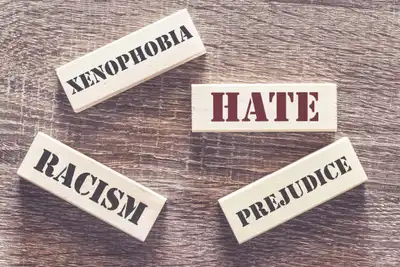Why Is Xenophobia A Problem In South Africa?

There has been recent attack on migrants in the country. Once again, South Africa is making headlines for all the wrong reasons. Following last week’s mob attacks on foreign-owned stores in Johannesburg and Pretoria, at least 12 people were killed and hundreds were detained. The attacks sparked outrage across the entire African continent and led to retaliatory attacks abroad. Nigeria started to evacuate some of its citizens, called back its high commissioner, and abstained from the Cape Town World Economic Forum summit.
Statistics?
Prior to 1994, immigrants faced discrimination and even violence in South Africa. After majority rule in 1994, the incidence of xenophobia increased. Between 2000 and 2008 67 people died in what were identified as xenophobic attacks. The proportion of South African population that is foreign born increased from 2.8% in 2005 to 7% in 2019.
Supposed Reasons behind the Attack
Crime: In South Africa’s major urban cities, foreign nationals, particularly undocumented immigrants, have been made the scapegoats for crime, with both politicians and police blaming them. In the year that ended in March 2019, there were over 21,000 homicides in the nation, indicating a significant crime problem. In addition to murder rates, there has been an increase in sexual offenses, assaults, and robberies as awareness of violence against women grows.
Inequality: The World Bank estimates that in 2015, the richest 10% of South Africans held roughly 71% of the nation’s net wealth. Exclusionary practices left over from apartheid, unequal land ownership, restricted access to capital, and weak economic growth have all contributed to persistent levels of inequality.
Unemployment: The latest wave of xenophobic attacks is undergirded by the belief that foreigners—mainly migrants from other African countries—are to blame for South Africa’s social and economic woes. And while a significant number of the population hold anti-immigrant views, data shows the country faces bigger challenges than hosting foreign nationals.
- Where to Buy Alkaline Water in South Africa
- Where Is Newchic Located in South Africa
- Where Does Money Come From in South Africa
- Where Can I Study Teaching in South Africa?
- Where Can I Study Somatology in South Africa
- Where Can I Study Pharmacy in South Africa
- Where Can I Sell Eggs in South Africa
- Where Can I Invest My Money in South Africa?
Increased Number of Foreign migrants: South Africans have frequently voiced their displeasure over the influx of foreigners, with some alleging that it is burdening various sectors, such as the country’s healthcare system. Nevertheless, according to statistics from Statistics South Africa, out of a population of 51.7 million in 2011, there were 2.1 million foreign migrants living in South Africa. Since then, the population has increased to 55.7 million.
Poor Economic Growth: Citizens are blaming migrants for the recent economic pitfalls. After contracting in the first three months of the year, South Africa’s economy expanded by 3.1% in the second quarter of 2019. But structural barriers like corruption and a lack of advanced skills have hampered economic growth. Some economists predict that the third quarter will see an economic slowdown.
As a result of the government’s stricter immigration policies, the number of migrants may have decreased over time. For instance, the Department of Home Affairs deported nearly 370,000 individuals between January 2012 and December 2016, the majority of whom were from the nearby countries of Lesotho, Mozambique, and Zimbabwe.
Share This




